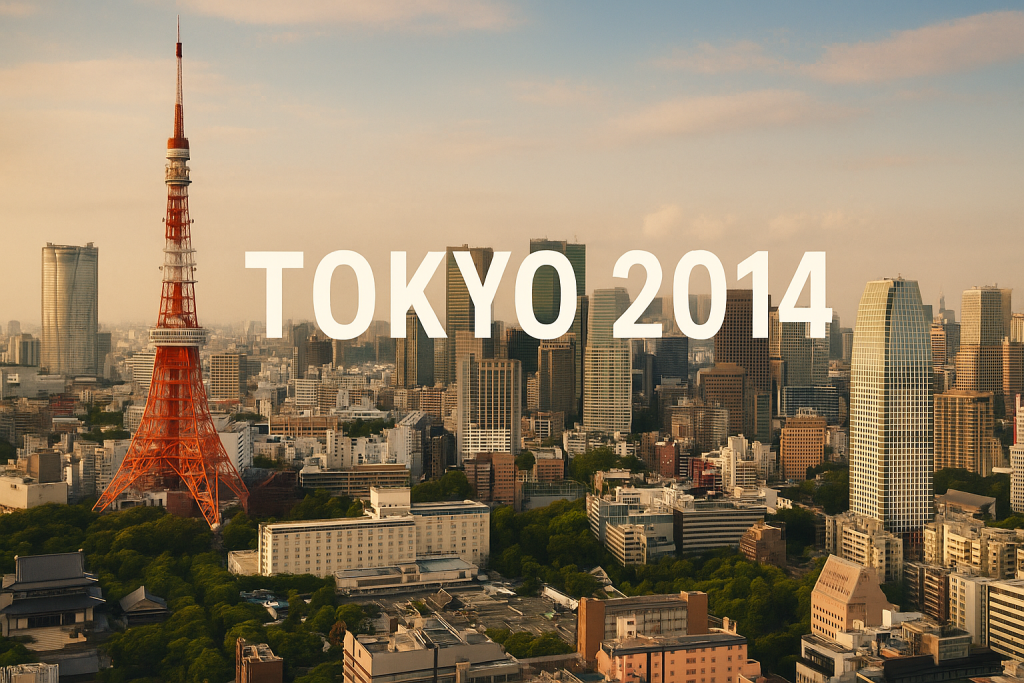
Back in middle school, I found escape in the strangest way—through ink, paper, and stamps. Pen pals. A fading ritual, like handwritten postcards and phone calls that cost money. I didn’t know it at the time, but that was the first time the world cracked open for me. A kid in central Pennsylvania, writing strangers on the other side of the planet, curious about people, their food, their chaos. I was addicted to history and the strange ways humanity stumbled forward. But Japan? That wasn’t even on the radar yet.
Then came Chris.
High school. He had this calm confidence and stories—real ones. He lived in Germany. Four years in Japan. Not as a tourist, but as someone who belonged there. My eyes were wide. I wanted that. I wanted stories that came with weird breakfasts and long train rides through rice fields. Chris didn’t hoard the experience—he wanted me to see it, to feel it. The music, the places, the rhythms of a culture that wasn’t mine. Meanwhile, I was stuck in a place where the most exotic thing on the dinner table was a stromboli with too much American cheese.
Central PA was small. Not just the town—the mindset. Food came in beige. Music came through static radio. Everyone had plans, but none of them involved passports.
Life, of course, doesn’t give you things easily. I wanted Japan, but Japan wanted a visa, a degree, a job lined up. And I had none of that. Just a part-time grind and a calendar full of missed chances. When I had the time, I didn’t have the money. When I had the money, I was someone else’s responsibility.
Fast forward through a blur of airports, checkpoints, and false starts—Japan still hadn’t happened. I checked off places: Germany, the Middle East, a few corners of the world that smelled like dust and diesel. But Japan? That damn checkmark stayed empty.
I once had a trip booked—free, even, thanks to airline miles. But I gave it up. Used the ticket to send my kids to see their grandparents. The kind of sacrifice you do and then forget to pat yourself on the back for.
Years later, I had the time. I had the money. But I also had a wife who didn’t get it. Maybe it was insecurity. Maybe it was resentment. I didn’t care anymore. I’d been overseas, grinding 12-hour days for 90 days straight in the Middle East. A slow boil in the desert. All I needed was a week to feel human again before I returned to the domestic reality of bills and passive aggression.
But she didn’t like that.
I remember calling home. Her voice—tense, accusatory. I was “vacationing” instead of rushing back like a good husband. But she didn’t understand. I needed distance. I needed Tokyo. I needed something for me, or I was going to bring the storm home.
I didn’t tell her how long I’d be gone. Why fight over it? This was my battle, and I’d already won it.
I wanted to visit my pen pal in Niigata, finally meet the person on the other end of those letters from my childhood. But the clock was ticking. I only had three full days in-country. I’d save Niigata for another time.
So there I was—standing in Dubai airport, bags packed, ready to board a plane to Japan. A strange calm came over me.
It wasn’t just a trip.
It was finally punching that ticket I’d been carrying around since I was 12.
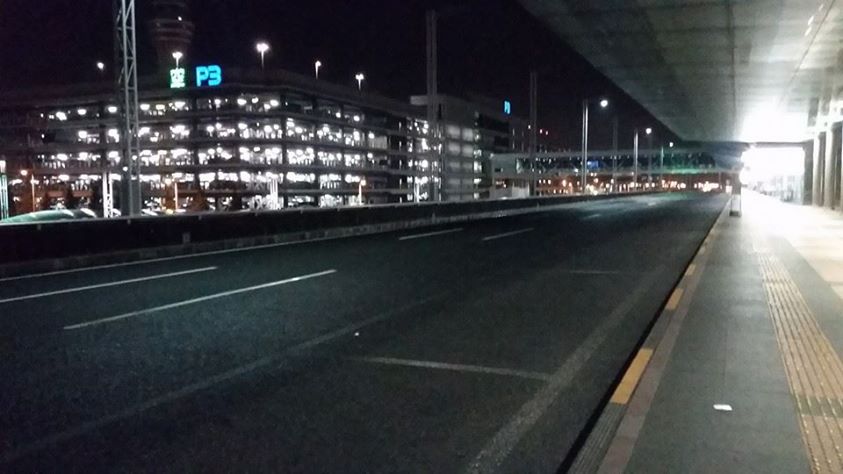
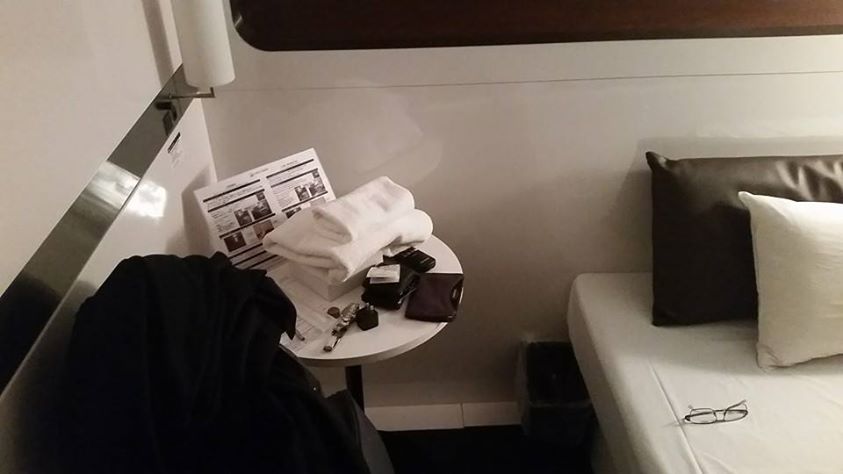
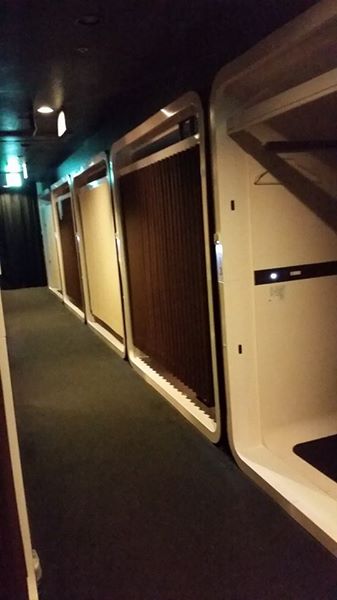
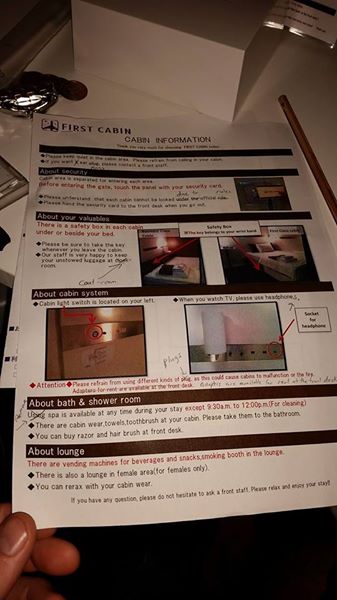
The plan was simple. Get on a flight in Dubai, get off in Japan. What could go wrong?
I landed at Haneda just past 11 PM, and that’s when it hit me—Tokyo might be the city that never sleeps, but its trains sure as hell do. They stop. And when they stop, they don’t care how tired, lost, or culture-shocked you are.
So I did what I thought was clever—I booked a capsule hotel right at the airport. Sleek. Futuristic. Quintessentially Japanese, right?
Wrong.
Customs was quick, but the moment I stepped into the terminal, I realized I had no idea where I was going. Signs in English? Kinda. But not really. I wandered aimlessly, like some midnight zombie with a carry-on. Wasted a cab driver’s time only to end up right back where I started. Sorry, man.
Eventually, someone must’ve noticed I was the only foreigner pacing around like a confused raccoon. An airport security guard approached—gentle, with a warm smile and that perfect Japanese kindness. His English was rough, but better than my Japanese. He personally walked me to the capsule hotel entrance like I was some clueless backpacker in need of saving.
And there it was—tucked into the belly of the airport, almost too unassuming. My first real night in Japan. I was buzzing with excitement. That electric kind. The “you made it” kind.
I slid my luggage into a space barely big enough for one man and his regrets. The capsule was 6-by-6, just enough room for a bed, no illusions of privacy. I thought I’d be anxious about my stuff, but I’d come to learn—nobody touches anything in Japan. There’s a quiet code here. A respect.
But capsule life? It was not the cool sci-fi dream I imagined.
The walls were thin. Paper-thin. On one side, rhythmic snoring. On the other, something that sounded like a solo performance best left undocumented. That was my cue: no sock sessions tonight. Eyes forward. Keep it classy.
Bathrooms? Communal. Showers? Also communal. No stalls, no curtains—just a row of exposed showers like it was bootcamp all over again. I skipped it. Shy? Maybe. Tired? Definitely.
I lay there in that glowing plastic coffin, the fan humming like an anxious whisper, scrolling through hotel listings. I needed comfort. I needed familiar. I booked a Hilton. I had status, after all. Points to maintain. A bed that didn’t come with rules about masturbation.
But even there, lying in that glorified locker, I felt something real. A sense of arrival. Of crossing a line I’d dreamed about since I was twelve.
I also felt the urge to fix the hotel’s broken English instructions. Maybe they’ll change it. Maybe they won’t. Doesn’t matter. What mattered was this:
Tomorrow, the trains start running again. Tomorrow, I leave the airport.
And tomorrow, I wake up to my first real full day in Japan.
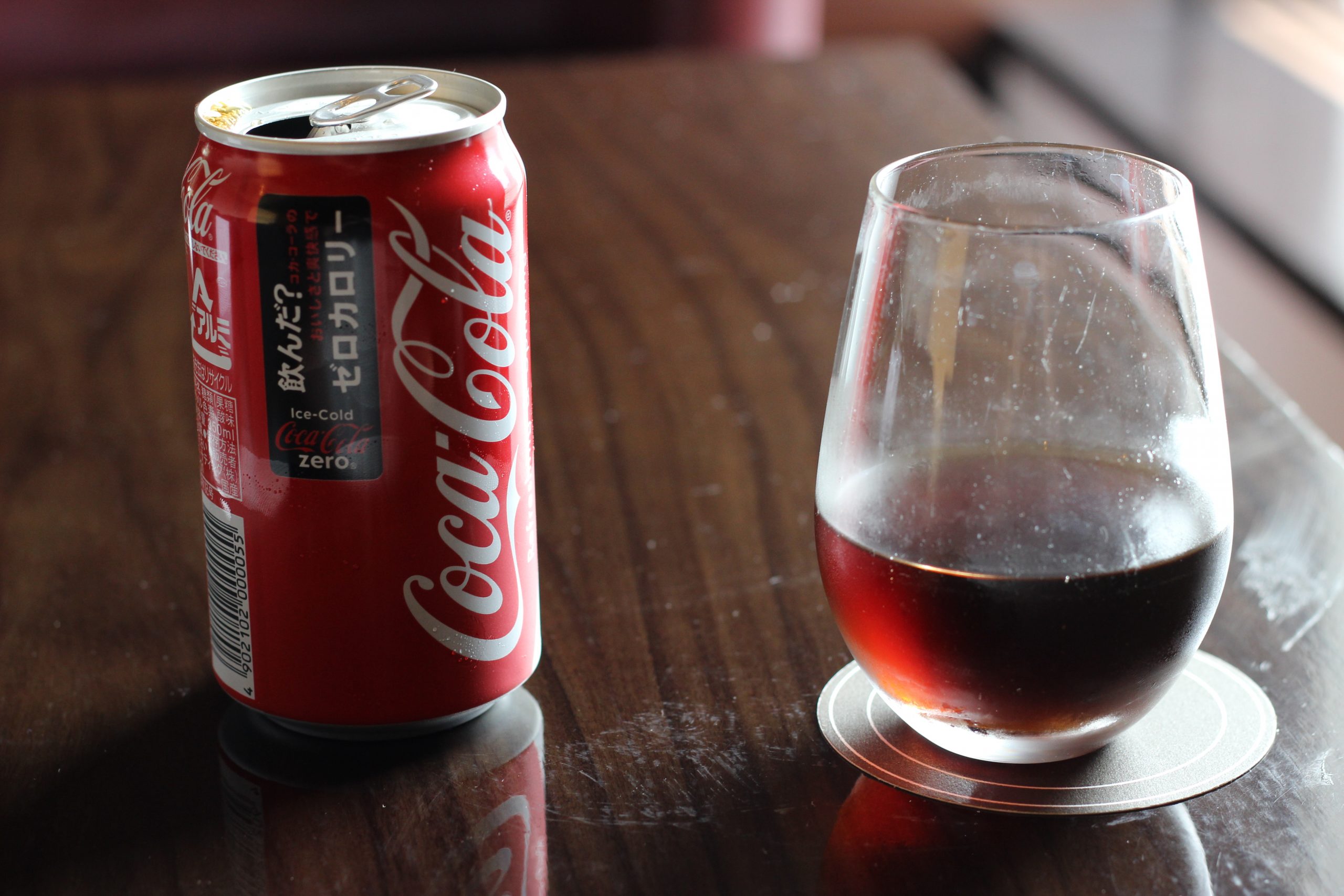
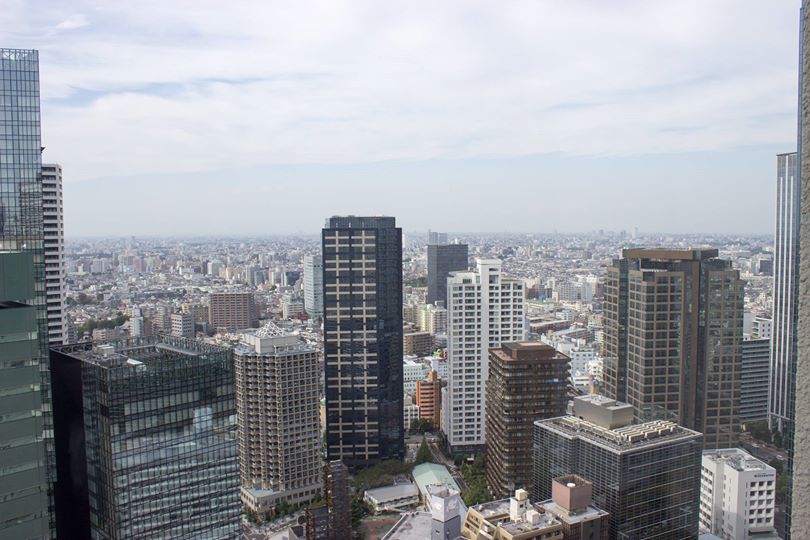
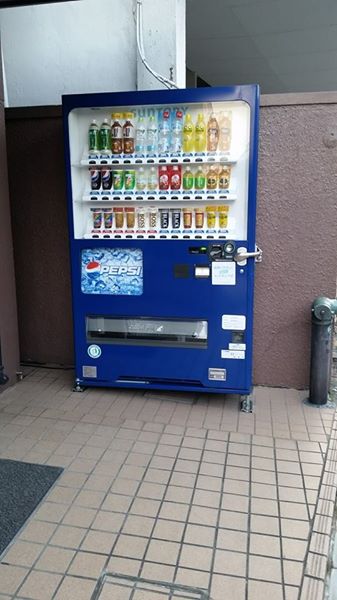
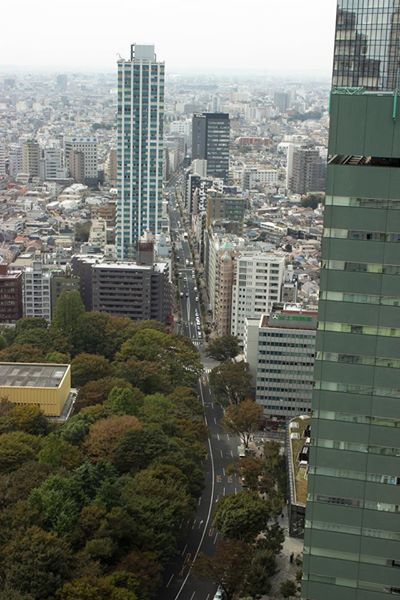
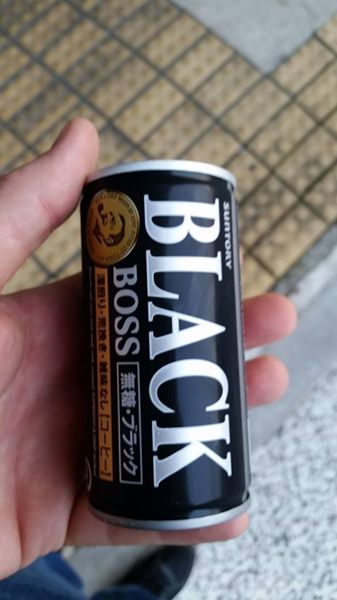
By now, I had Google Maps—my digital compass, my lifeline in a land where the streets curve like ramen noodles and addresses are a Zen riddle. The Tokyo train system? Still a cryptic beast. But like everything else in Japan, it made sense once you surrendered to its logic.
Luggage in tow, I boarded the train from Haneda to Shinjuku, that neon-soaked nerve center where reality frays just a little around the edges. It was quiet. Orderly. But not cold. I didn’t blend in—nobody ever does here—but a pair of kind, older Japanese women clocked me immediately: foreign, confused, probably carrying too much.
They let me sit in the “silver” section. For the elderly. For the injured. For the tired traveler with wide eyes and a dumb grin. I nodded my thanks. They smiled. No words needed.
The Hilton in Shinjuku treated me like a lost dignitary. Polished English, polite bows, keys handed over like I was royalty returning from exile. I was upgraded—big room, lounge access, clean sheets and hot water that didn’t come with shame.
I dropped my gear. Changed into something that didn’t smell like jet fuel and defeat. And I did what any wide-eyed tourist in Tokyo would do: I stepped outside and headed straight to the vending machines.
Not just machines. Icons. Shrines to convenience and weirdness.
You’ve heard the legends—beer, cigarettes, maybe even used panties for the depraved and the desperate. Japan doesn’t judge, it just delivers. But what I found that morning wasn’t filth. It was something better.
Black Boss.
A canned coffee with a name that punches you in the throat. No milk. No sugar. Just attitude and caffeine. I cracked it open. Took a sip.
I didn’t feel like a boss.
I felt like a man who’d spent 20 years trying to get to this moment.
The city didn’t roll out a red carpet. It didn’t need to. The crosswalks pulsed. The neon buzzed. I started walking toward Shibuya—the legendary crossing. That sea of motion where hundreds move like a choreographed hallucination.
I still wasn’t sure how I felt. But I was here.
And that was enough—for now.
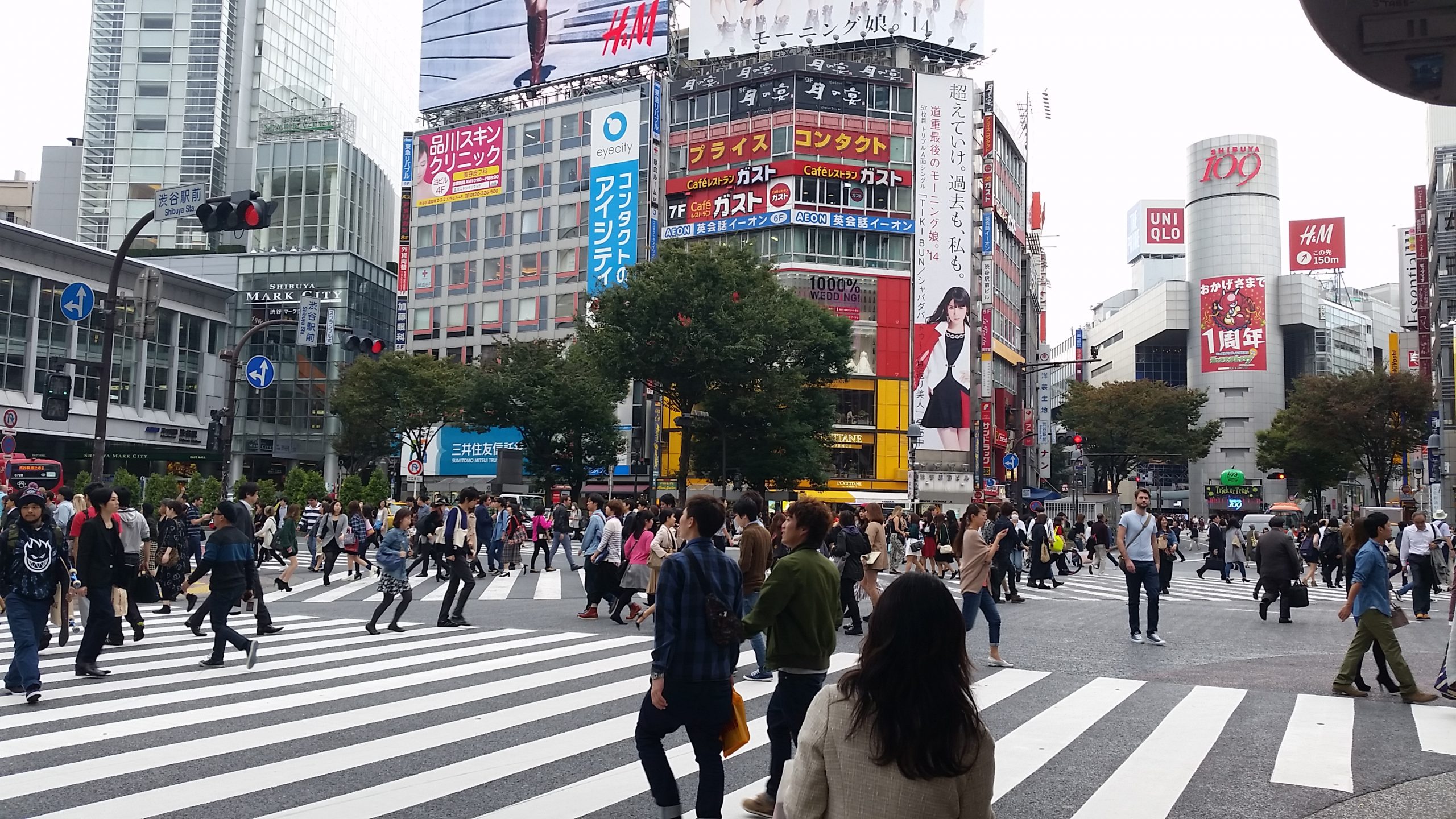
I knew I had to do it.
The Crossing.
Shibuya—chaotic, cinematic, absurdly photogenic. I’d seen it a thousand times in films, blogs, and pixelated YouTube clips. But now, I was here. No screen between me and it. Just the city. Moving. Breathing.
Before I stepped into that river of humanity, I paid my respects to the Hachikō statue. A loyal dog who waited years for a master that never came home. The story punches you right in the chest—pure devotion wrapped in rusted bronze. Japan loves its ghosts.
The internet told me to visit, and for once, it wasn’t wrong.
Then I crossed.
Once. Twice. Five times.
Not because I was lost. Because I needed to feel it. That rush of strangers brushing past with perfect indifference. No one shoving. No one yelling. Just silent movement—hundreds of lives intersecting for mere seconds before splintering off into the city’s veins again.
Each time I crossed, something shifted in me. A surreal mix of awe and melancholy. This wasn’t just a tourist box to check. It was the moment.
I was here. Finally. Really.
But it was bittersweet.
Because every step reminded me that I wouldn’t be here long.
And sometimes, the most beautiful places are the ones you know you can’t stay in.
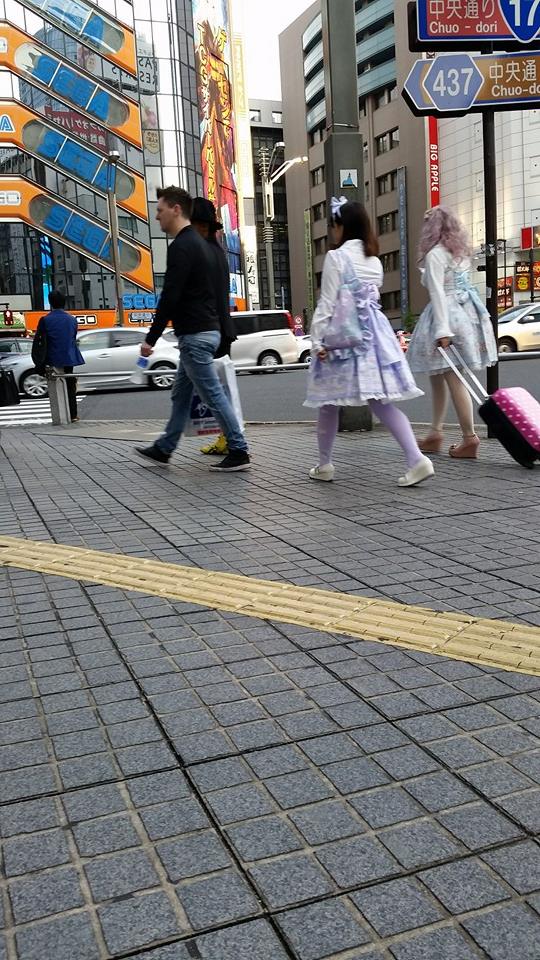
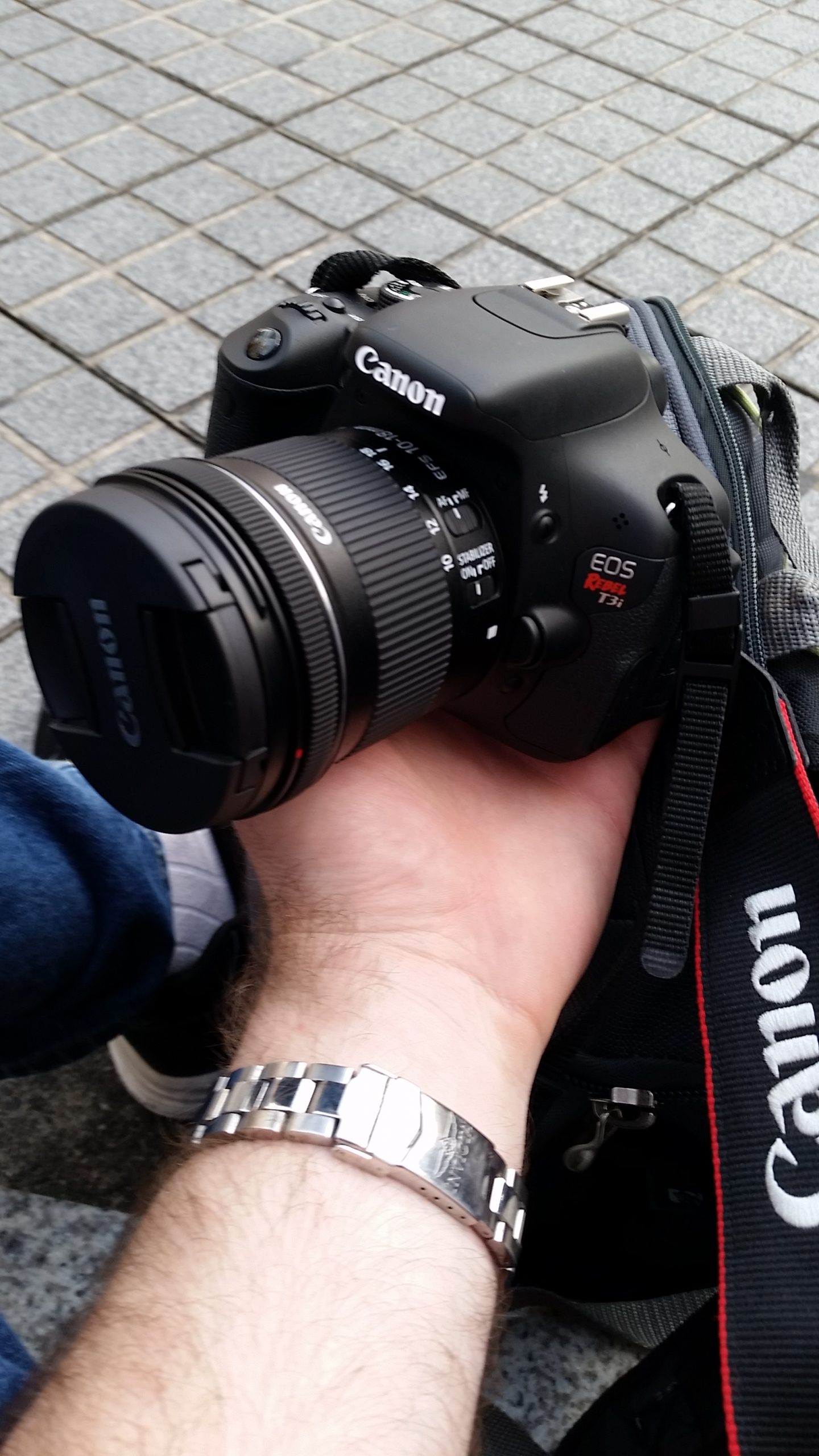
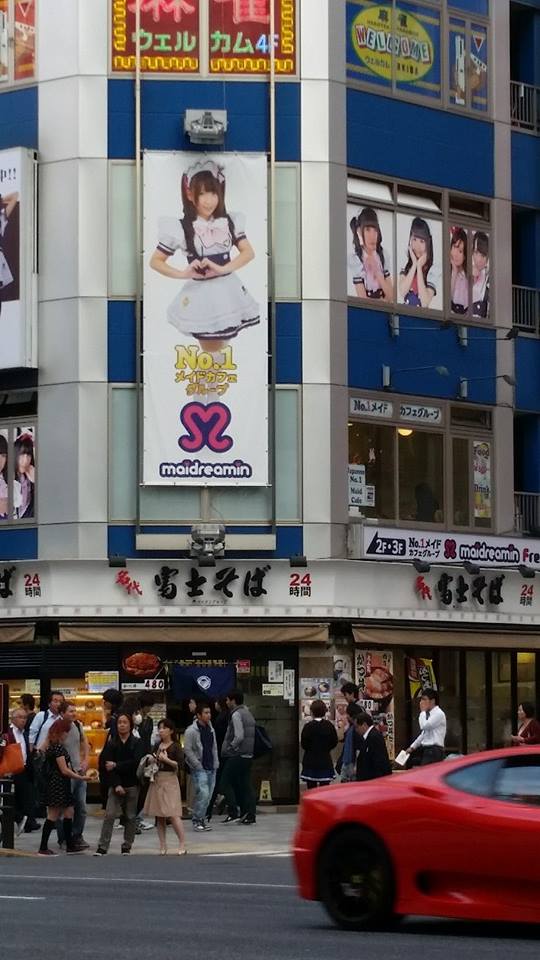
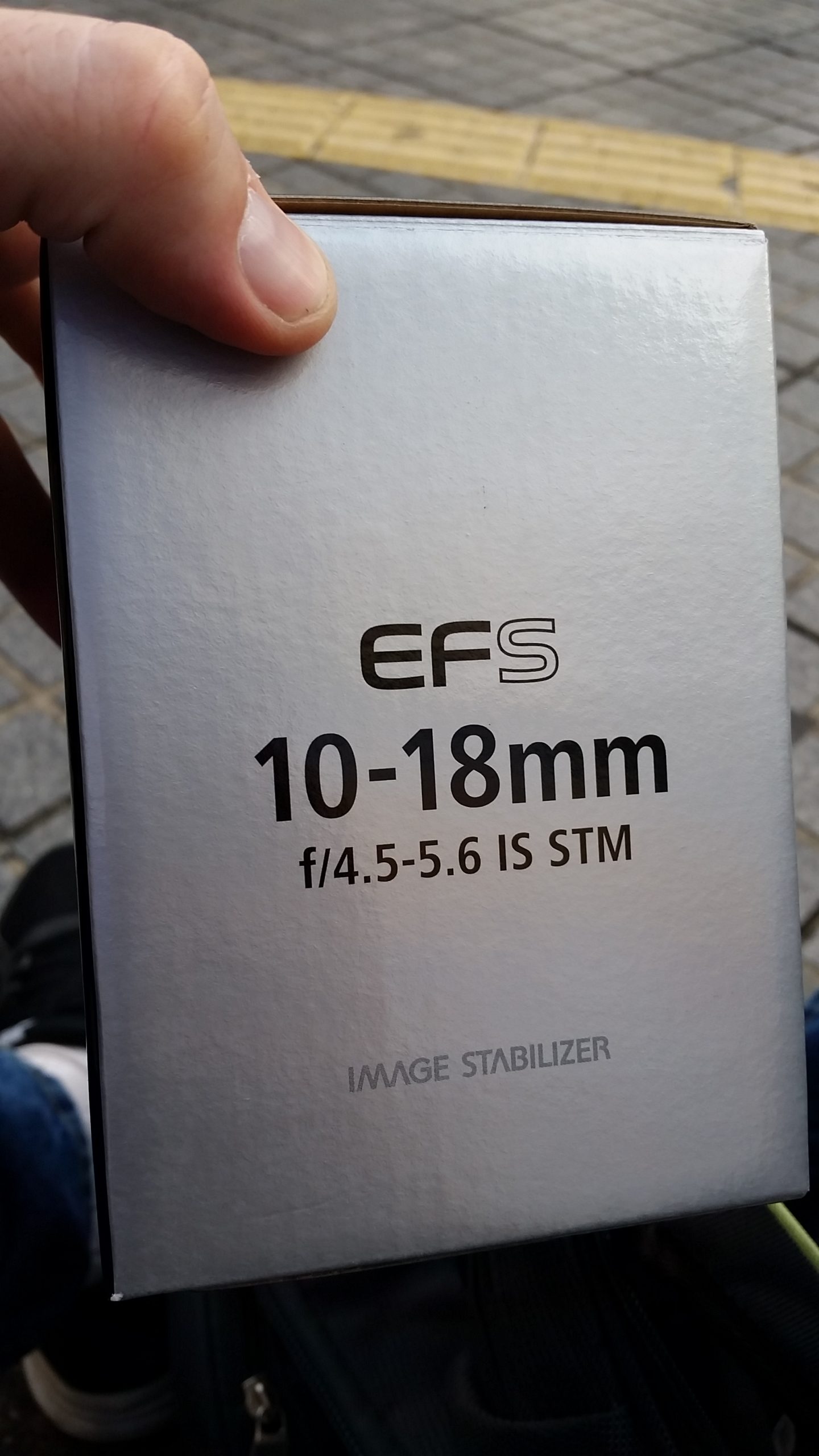
The train ride was smooth. Of course it was. In Japan, even chaos arrives on time.
I was headed to Akihabara—the technophile’s sanctuary. A shrine built from neon, circuitry, and obsession. If Tokyo had a heartbeat, this was its electric pulse. You don’t just visit Akihabara. You plug into it.
For me, this wasn’t about anime girls or capsule toys—though they were everywhere, staring at you from vending machines like glitchy avatars. No, I came for the gear.
I did the sensible thing. I went lens hunting.
Back then, I still traveled with a DSLR. Phones weren’t there yet. They couldn’t capture what I needed—the wide shots, the edges of temples, the breath of a crowded alleyway at dusk. I needed glass. Something sharp. Something honest.
I found it.
A beautiful wide-angle lens. Expensive, sure. But what the hell. I’d earned it. After months of grinding in the desert, buried in sweat and sand, this was my gift to myself. Not a Rolex. Not a watch. A tool. Something to document the world properly.
Akihabara didn’t stop moving. Every alley held another world. Arcades. Camera shops. Maid cafés. Walls of blinking light and 8-bit nostalgia. You could lose hours here. You should lose hours here.
But even surrounded by the digital, I felt something grounded.
This wasn’t just tech.
It was possibility.
And in that moment, standing beneath a tangle of signs and sounds, camera in hand, I felt ready to go find it.
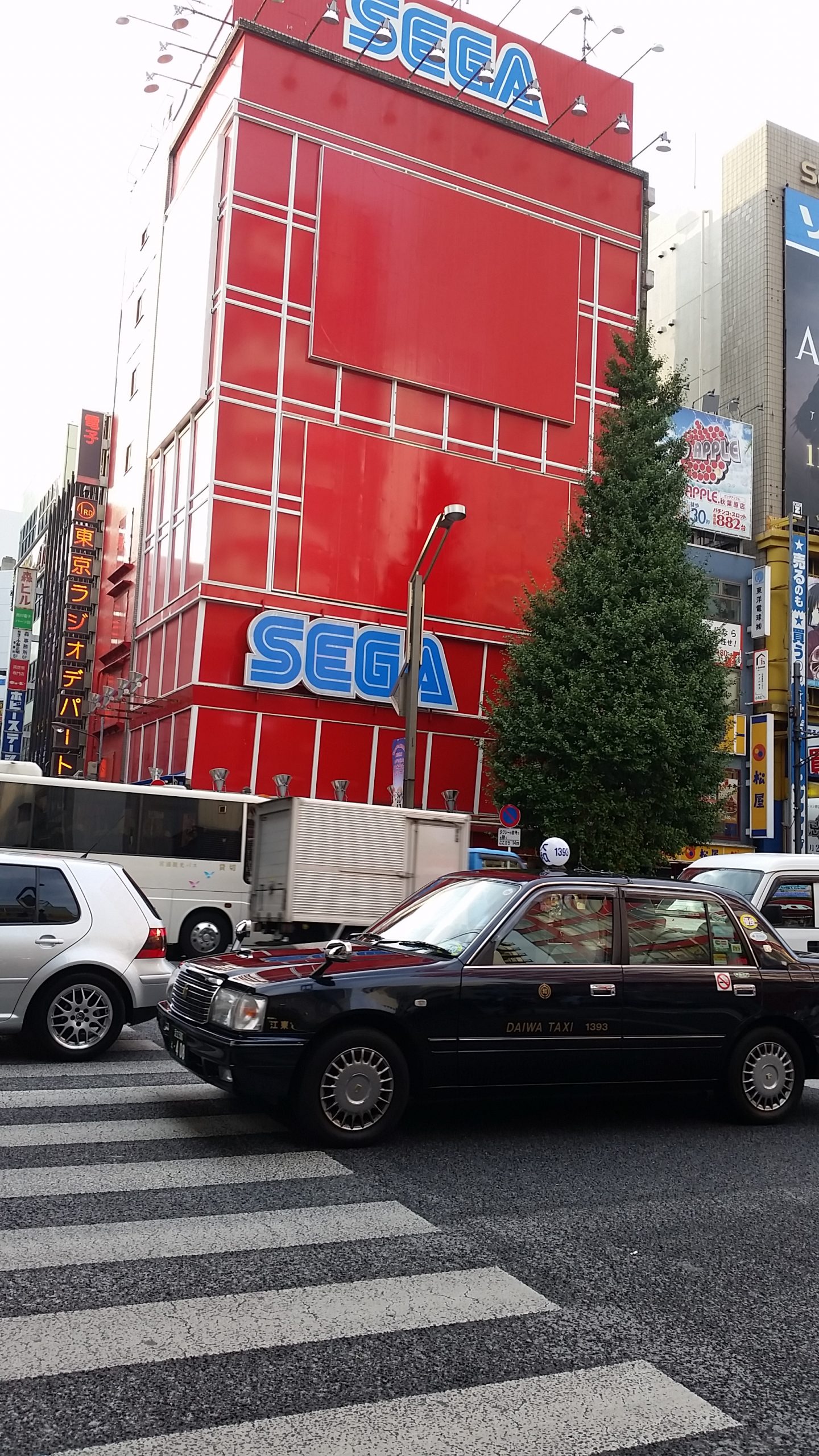
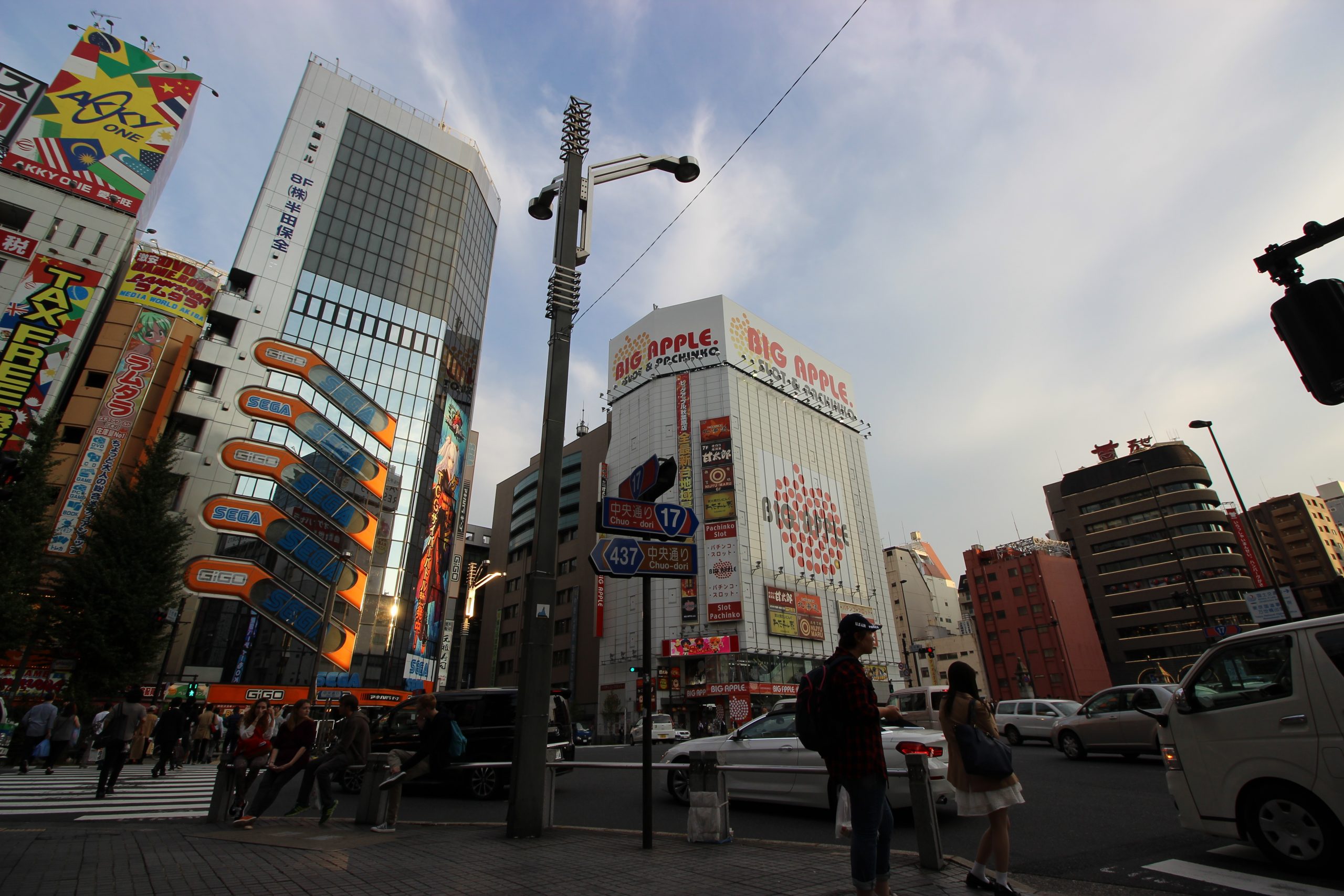
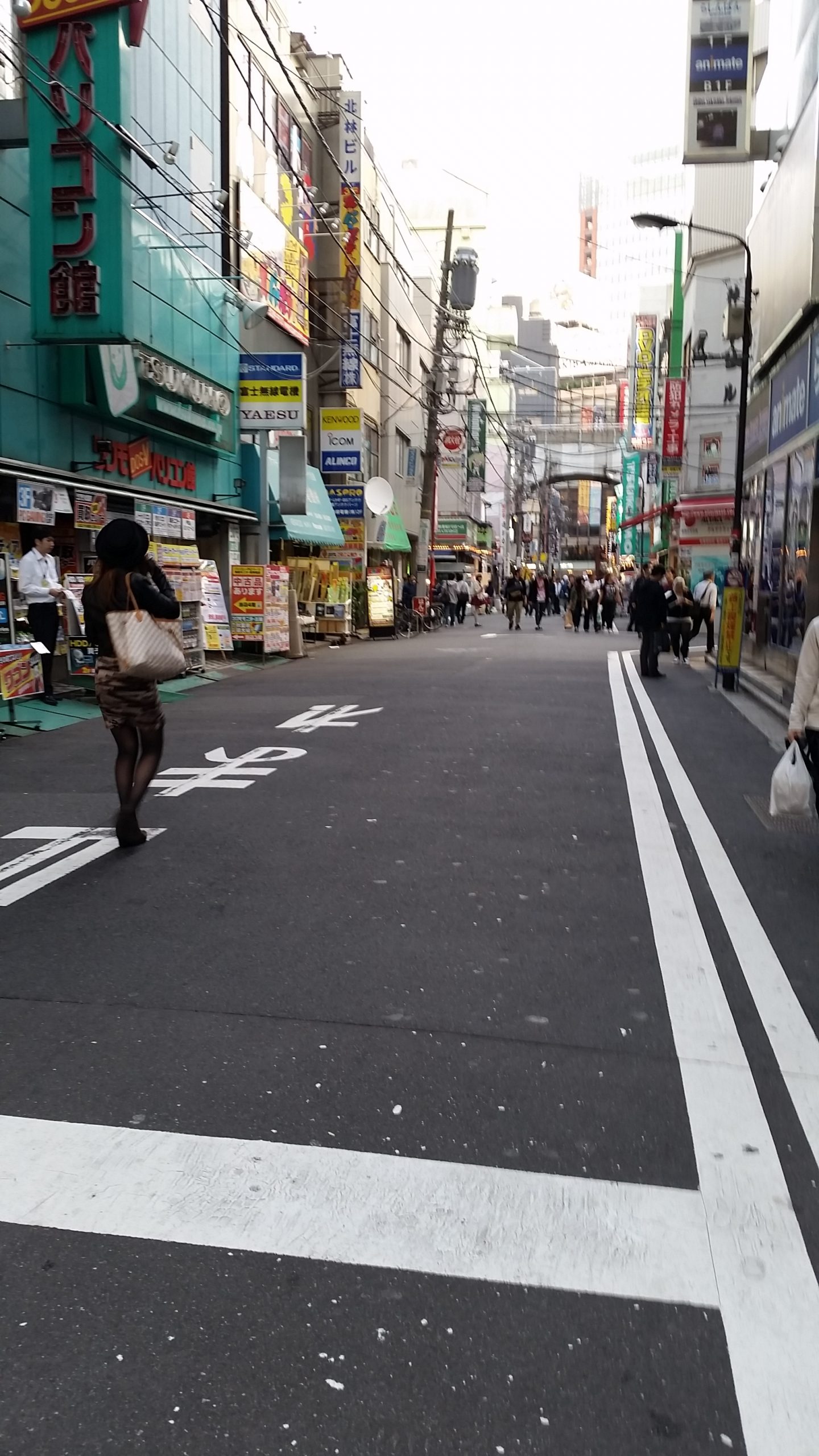
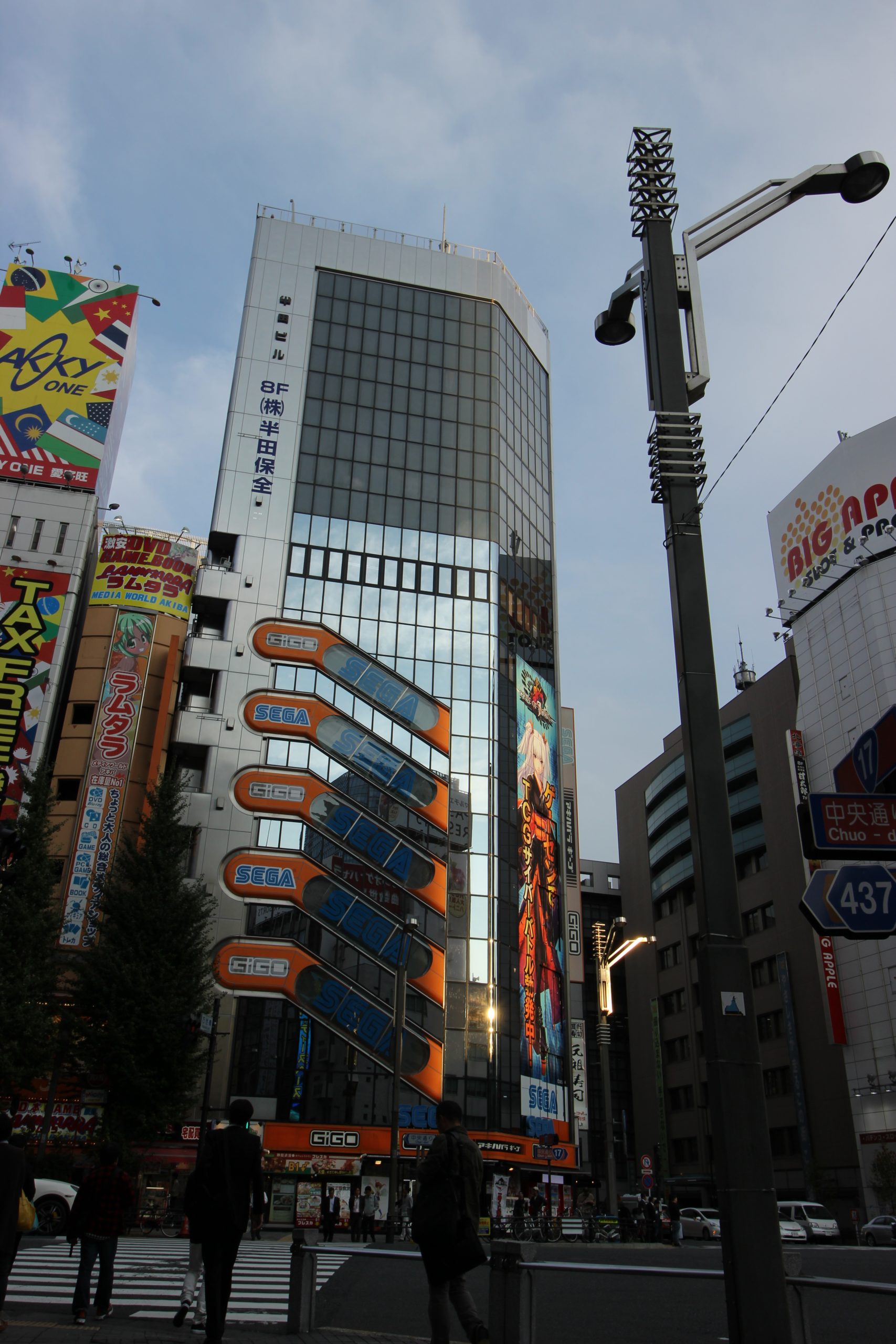
I was still figuring it out—this camera, this city, this moment.
The Canon DSLR hung around my neck like a tool I hadn’t quite mastered. I fumbled with exposures, tried to catch light in ways I didn’t fully understand yet. But I knew I’d get there. Eventually. Sometimes you have to take the bad shots before you find the good ones.
Akihabara was a maze. Bright. Loud. Beautifully absurd.
I walked—no, wandered—through it like a pilgrim in a place of worship he couldn’t quite explain. I didn’t know when I’d be back. Or if I’d be back. So I made the most of it. I climbed the stairs in tiny stores stacked like circuit boards, each floor more chaotic than the last. Floors that smelled like hot plastic and ambition.
I passed walls of retro games, blinking machines screaming for attention, the soft glow of nostalgia wrapped in LCD and grime. I didn’t play anything—I just watched. Took mental snapshots. Noted what was there, and more importantly, what might not be in ten years.
Time’s funny like that. You don’t feel it passing until everything you remember is gone.
Eventually, the adrenaline wore off. I felt it in my legs, in my spine. I’d been running on excitement and vending machine coffee. I needed a break. So I headed back to the Hilton. My temporary sanctuary. Familiar sheets, hot water, silence.
Rest wasn’t just welcome. It was necessary. I was still learning how to be here.
And tomorrow, there’d be more to see.
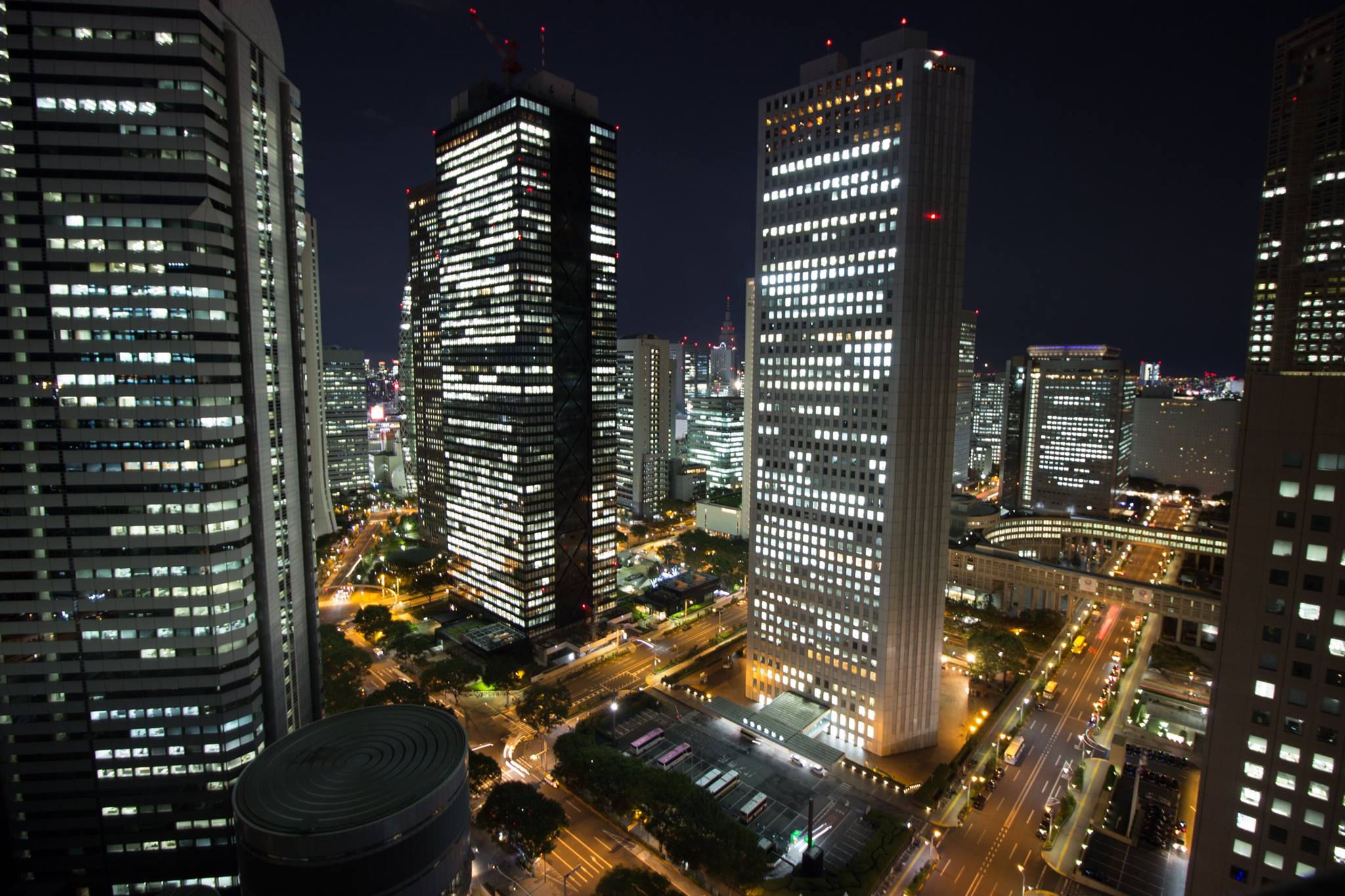
Back at the Hilton, I took the elevator to the lounge—VIP access. One of the few luxuries that actually meant something when the real world started to fray at the edges.
I poured a Scotch. Then another.
I wasn’t drinking to celebrate. Not really. I was drinking because I’d been drinking hard for the last three months with brothers-in-arms out in the Middle East. Men who were exhausted, sun-scorched, missing their families, and just trying to keep it together. We didn’t toast much. We just tried to feel normal for a few hours between the shifts and the silence.
But here—back in civilization, back in Tokyo—I felt it coming on. The unraveling.
I didn’t go to the bar. I didn’t chase women. I didn’t make bad decisions that would leave scars. I stayed in the room.
And I broke down.
Not loudly. Not violently. Just enough.
My hands shook. My breath turned shallow. The room started to close in—but the view was still there. Tokyo at night, glowing beneath me. I stared out the window. I waited 18 goddamn years for this moment. I should have felt triumphant. I should have felt something like joy.
Instead, I cried.
Because my wife—my partner, the one who should have stood beside me—wanted to take this away. She didn’t understand why I needed this trip. Why I couldn’t just come straight home like a well-trained dog. She couldn’t see how close to the edge I was.
Or maybe she did. And didn’t care.
Before I boarded that plane, for the first time, I truly considered divorce. Not out of hate. Out of clarity. We weren’t a team. She couldn’t handle me traveling—and maybe she just couldn’t handle me.
She was coming off her time in the Navy, starting over with a low-paying job, clawing her way toward General Atomics. I wanted to be supportive. I tried. But I was broken, too. Worn thin by life, by deployments, by the thousand compromises we both stopped counting.
We didn’t fight fair anymore. She barked. She projected. She’d unravel, and I’d be expected to play therapist, husband, and punching bag all at once.
This time, though—I barked back.
On the phone, somewhere between accusation and desperation, I raised my voice. Maybe for the first time. I was tired of always being the one to take the hit.
And yeah… maybe if I had flown straight home, things wouldn’t have gotten worse.
But they wouldn’t have gotten better either.
She was a control freak. She hated when I left. She hated when I didn’t bring her. She hated my friends. Especially Rick.
But Rick was there.
I called him, somewhere around Scotch number three. The guy my wife loathed, the guy who’d been through fire with me since high school. He picked up. No judgment. No clichés. Just calm. Just presence.
He talked me down.
The shakes stopped. The room stopped spinning. The noise in my head quieted, just enough.
I climbed into bed, the city still buzzing outside, and for the first time since I got here, I slept.
I made it to Japan.
And the one person who should’ve celebrated with me… scorned me instead.
I didn’t need much. Just support. Just someone who understood the weight I carried.
But she wasn’t that person anymore.
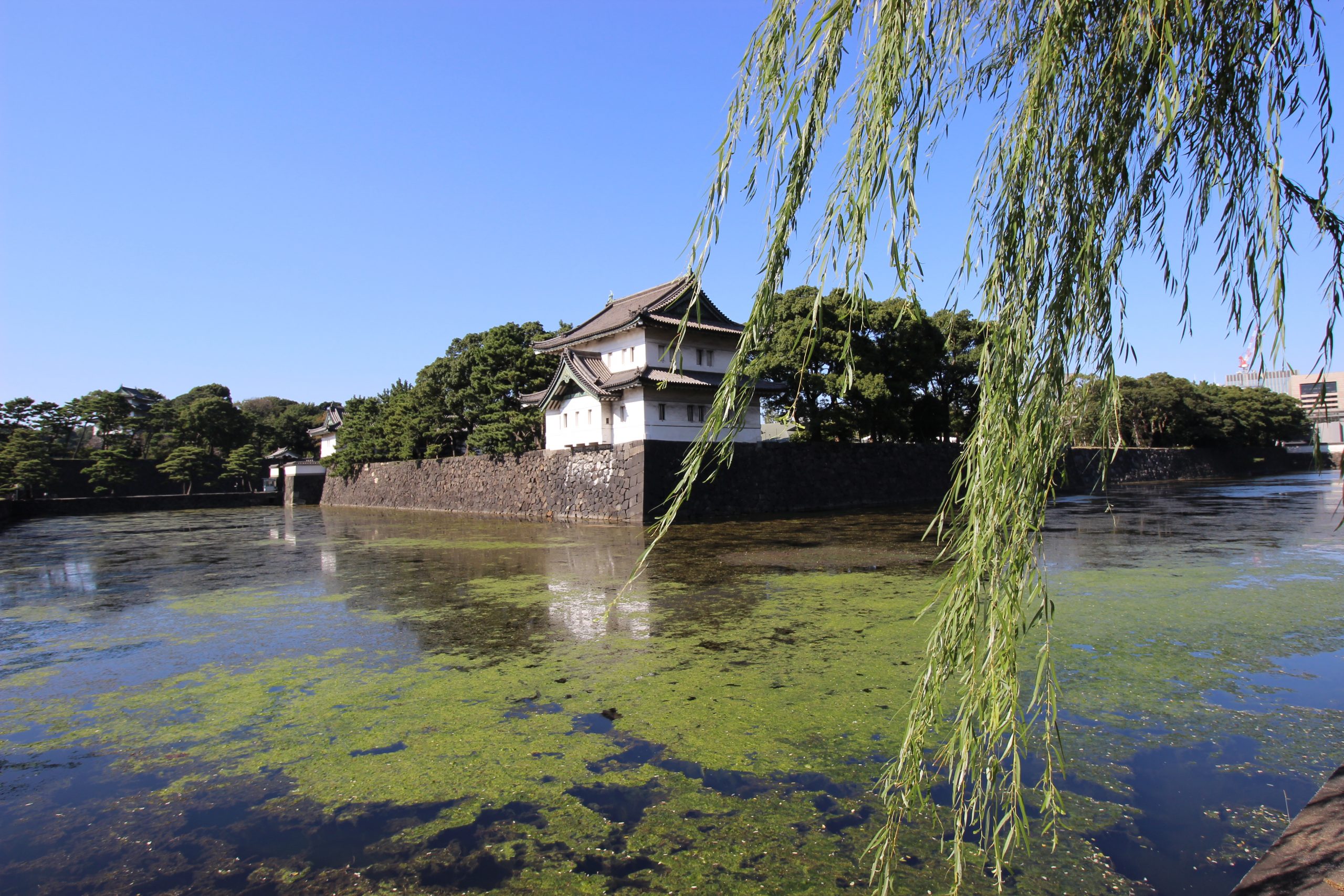
The next morning, I wandered Tokyo with no real plan—just a camera in hand and a quiet ache in my chest.
I made my way toward Edo Castle. I wanted old stones, old wood, old silence. Something ancient to remind me that not everything had to be shiny and fast. The grounds were peaceful—well-kept, precise, surrounded by the quiet discipline Japan is so good at. I snapped photos, experimented with framing and exposure. I wasn’t just sightseeing. I was cataloging. Mapping out a mental grid. For the next time. If there was a next time.
Not far from the castle, I descended into one of the city’s underground malls—those endless subterranean mazes lined with shops, bakeries, and little cafés that smelled like soy and sweetness. A world beneath a world. Tokyo’s layers run deep.
Eventually, I found myself near Tokyo Station.
It’s a beautiful thing—red brick, European curves, standing proudly like a remnant from a different age. It feels like it belongs to another city. Another time. I stopped and stared, appreciating it the way you do when you know you’re about to leave something behind.
But hunger always wins.
I ducked into a building overlooking the station and found a quiet restaurant. No crowd. No pressure. Just me and the weight of tomorrow. The woman handed me an English menu—gracious, no judgment. I ordered curry. Warm, simple, comforting. A meal made for reflection.
Tomorrow I’d go home.
Whatever home meant anymore.
My kids—Ophelia, now Tyler, and little Orion—were waiting. They were still young. Still adaptable. Maybe too young to realize how far I’d gone, and why. I missed them. Ached for them. But this was my reality: I traveled to keep the lights on. To make sure they had what they needed. And yeah, I chased adventure too.
Because I wasn’t getting love at home.
Not anymore.
My wife? She’d made it clear—this wasn’t about us. It was always about her. Her struggles. Her anxiety. Her noise. Her silence. Her rules. Her scorn.
And I couldn’t fix that.
I used to think if I just tried harder, if I came back sooner, if I spoke softer… maybe. But no. Her unhappiness was her own. A storm she refused to name. And it spilled into everything. The kids. The house. The dinner table.
She didn’t do much. Not really.
She cooked. And bitched.
She bitched about cooking.
And when she wasn’t doing that, she was angry at the world. At me. At herself, probably. I’d try to help—give advice, offer solutions—but she didn’t want that. She just wanted someone to blame.
So I sat in a quiet restaurant in Tokyo. Ate curry by myself. Looked out the window.
And realized there was nothing left to fix.
I walked back to the hotel. Took one last glance at the Tokyo skyline. Then I slept.
Because tomorrow, I’d board a plane and fly home.
To what, I still wasn’t sure.
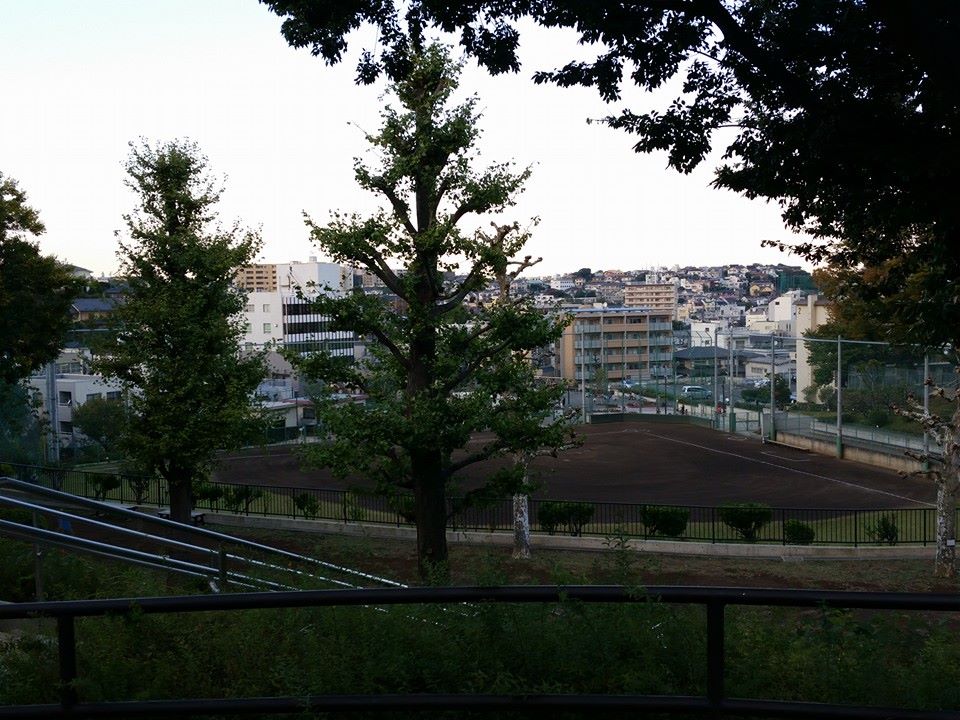
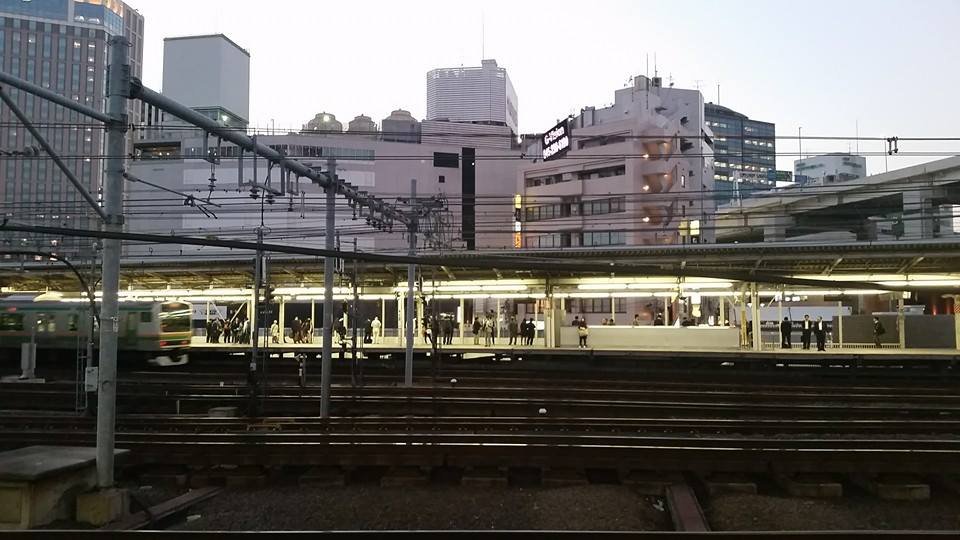
It was early. The kind of quiet only big cities know—before the trains fill, before the horns start, before the vending machines start to hum louder than your thoughts.
I was heading back to the airport. The same way I came. There’s comfort in symmetry when your life feels like anything but.
This trip—my first to Japan—wasn’t a highlight reel of sushi, temples, and cosplay selfies. It was quieter. More personal. The kind of trip you don’t post much about because you spend most of it stuck in your own head.
I respected my wife enough to want her blessing.
I didn’t get it.
So I got up early and rode the train south to Yokohama. I didn’t know what I was looking for—peace, maybe. Forgiveness. A sign. There was a small park just outside the station, up a hill. Nothing special. No hidden temple or Michelin-star noodle shop. Just some benches. Some silence.
I climbed the hill. Sat down.
And I thought about all of it.
What if I’d never married? What if I’d made Japan my home back in the ’90s, when the itch first started? Could I have been happy? Maybe. I could have chased a job. Married a local girl. Stayed. But even in that dream, I saw the cracks—marrying for visas, chasing novelty instead of meaning. That wasn’t me. Not really.
I did love my family. My kids, without question. Ophelia—now Tyler—and Orion. They were waiting for me back home. Waiting to carve pumpkins and laugh. To have their dad.
And my wife? Sometimes I loved her too. But we were broken. Worse, we were silent about it. She couldn’t give me what I needed, and I couldn’t pretend anymore that everything was fine. I kept waiting for her to calm me, ground me, see me. But all I got was resistance. Projection. Control. Her unhappiness had become the houseguest we all lived with.
Still, leaving them behind to chase freedom? That was the coward’s dream.
And I’m not a coward.
I sat there on that bench and asked myself a hard question: What am I chasing?
Success? Validation? Peace?
Maybe I just wanted to finally say, I made it. That I clawed my way out of nowhere. Paid for my own life. That the boy who started with nothing was now here, in Tokyo, because he earned it.
I didn’t celebrate this trip.
I marked it.
Eventually, time was up. I walked down the hill. Took the train. Boarded my flight. Headed back to San Diego.
Halloween was coming. My kids were waiting for Daddy. And so, I put the costume back on—the husband, the father, the dependable man.
No one knew I’d be back in the Middle East just a month later.
But that’s another story.





































































































































































































































































































































































